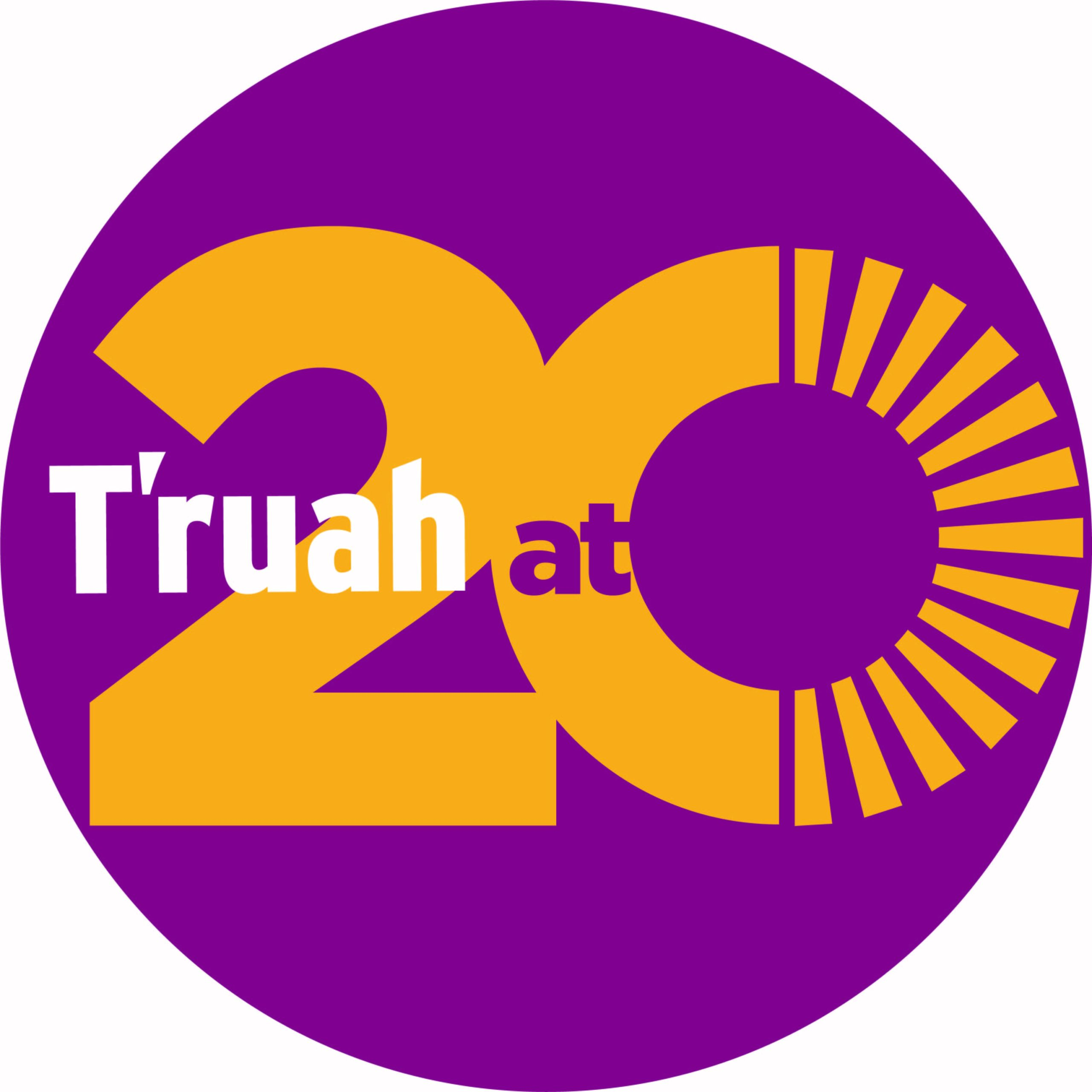Throughout 2022, T’ruah will be sharing reflections from chaverim, staff, board members, students, alumni and more in celebration of our 20th anniversary.
Rabbi Gerry Serotta was Organizer of the North American Rabbinic Cabinet in Support of Rabbis for Human Rights in 1999 and Chair of the Board of RHR-NA from 2002-2009.
R. Judah ben Tema associates reaching the age of 20 with the concept of pursuit — ben esrim lirdof (Pirkei Avot 5:21).
This is typically understood as arriving at a point of maturity when we may pursue our true calling to support those who depend upon us. However, the Torah associates lirdof with two other concepts: the pursuit of justice and peace, two core values of T’ruah.
In 2022, T’ruah turns 20.
I am honored to have been present at the “creation” of T’ruah, and I hope these reflections, the first of many to be shared throughout the year, will inspire you to join our cause and ensure that the sound of the T’ruah call to pursue justice continues to ring out ever more strongly.
Before T’ruah was called T’ruah, it was Rabbis for Human Rights-North America (RHR-NA).
While the anniversary of T’ruah’s founding could be dated from the legal incorporation of Rabbis for Human Rights-North America (RHR-NA) in 2002, that was the result of three years of organizing. We began in 1999 with a letter to rabbis seeking to create a North American Rabbinic Cabinet in support of Shomrei Mishpat, Rabbis for Human Rights or RHR in Israel. The cabinet was formed in April of 2000. In the summer of that year, Rabbi Rolando Matalon and I met with the Board of RHR in Jerusalem seeking their blessing to create RHR-NA.
At that meeting it was agreed that we would create a separate entity which in its initial stages would primarily support the work of RHR, but would later develop a program of advocacy and action concerning human rights issues in North America that would parallel RHR’s broad concerns — Palestinian rights, and also economic justice, human rights education, and support for immigrant workers.
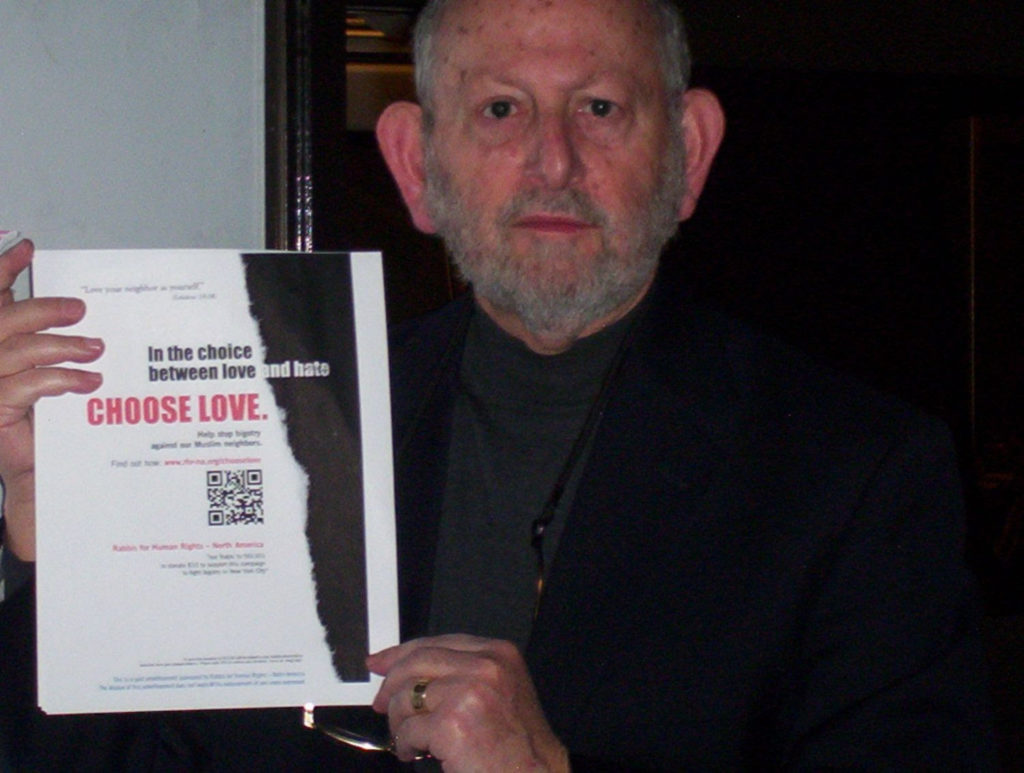
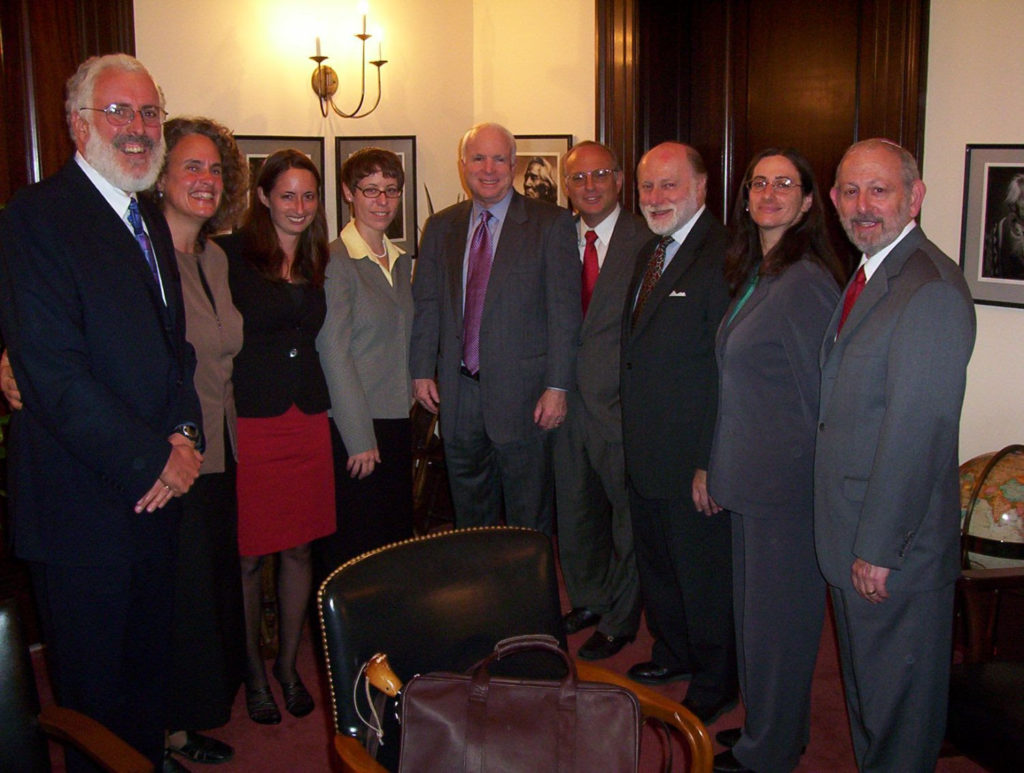
In early 2002, RHR-NA brought a delegation to Israel to plant trees on Tu BiShvat both within Israel and in the West Bank town of Hares, where olive trees had been uprooted by settlers and in some cases by the Israeli army.
This was the original Plant Two Trees campaign that is still ongoing.In those early years we also traveled to help with the olive harvest in the West Bank as well as to rebuild Palestinian homes that had been demolished as a result of discriminatory policies regarding the ability to gain building permits. We advocated to gain public support for RHR’s positions, sending a rabbinic letter of protest to then Prime Minister Ariel Sharon.
Within a couple of years, the RHR-NA board settled on two issues of focus for our work in North America: opposing torture (this was around the time of the Abu Ghraib reports) and human trafficking. RHR staff created powerful materials that were the basis of a Tselem Elohim campaign against torture, and we were instrumental in the initiation of the National Religious Campaign Against Torture (NRCAT). The anti-trafficking work began with organizing against “modern slavery” and led to the work of the Tomato Rabbis advocating for farmworker justice.
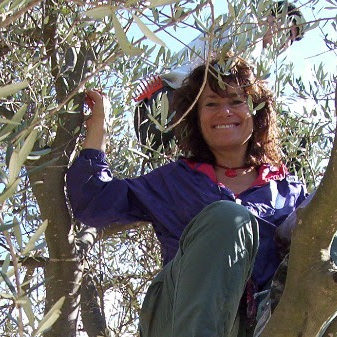
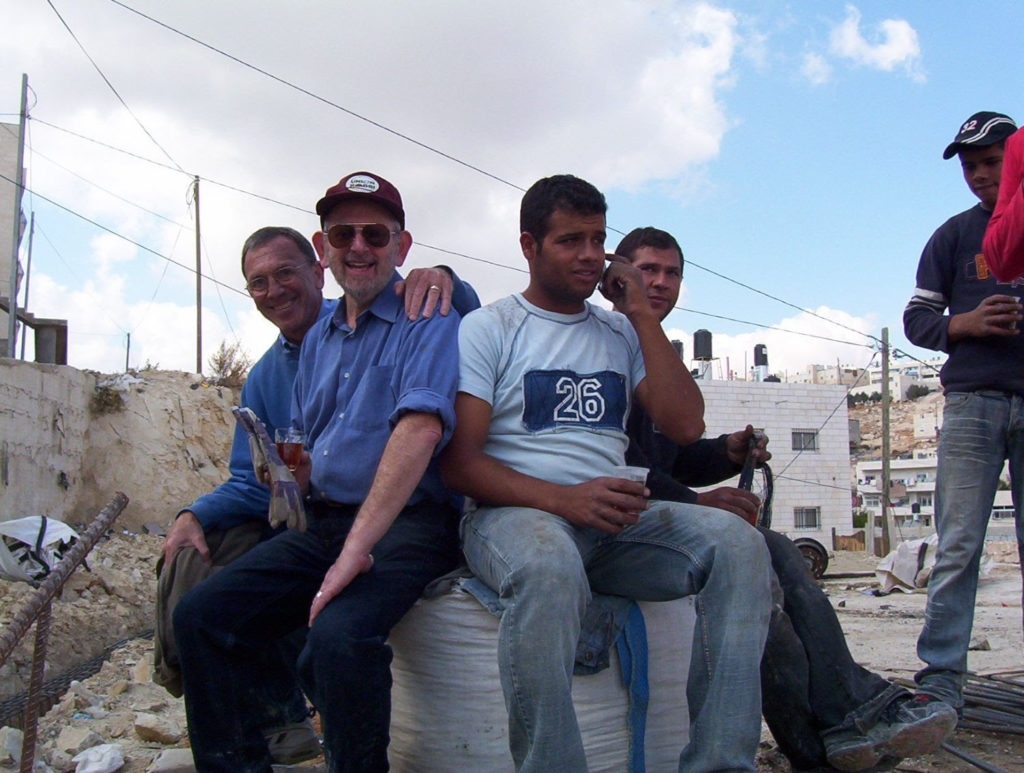
The education portion of our agenda included the production of materials oriented to the Jewish calendar with a human rights focus. I am proud to have suggested that part of that work should be the initiation of a new holy day for our communities, Human Rights Shabbat. Among other materials we created a Jewish commentary on the Universal Declaration of Human Rights, ratified at the UN on December 10, 1948.
In Israel, RHR from its beginning had a job to do to convince a skeptical public that “Rabbis for Human Rights” is not an oxymoron. T’ruah and our 2,300 rabbis and cantors are out to demonstrate that a Rabbinic Call for Human Rights is a kind of redundancy.
Help us spread the word that at the age of 20 T’ruah stands ready to expand our pursuit of justice and peace — with your support!

